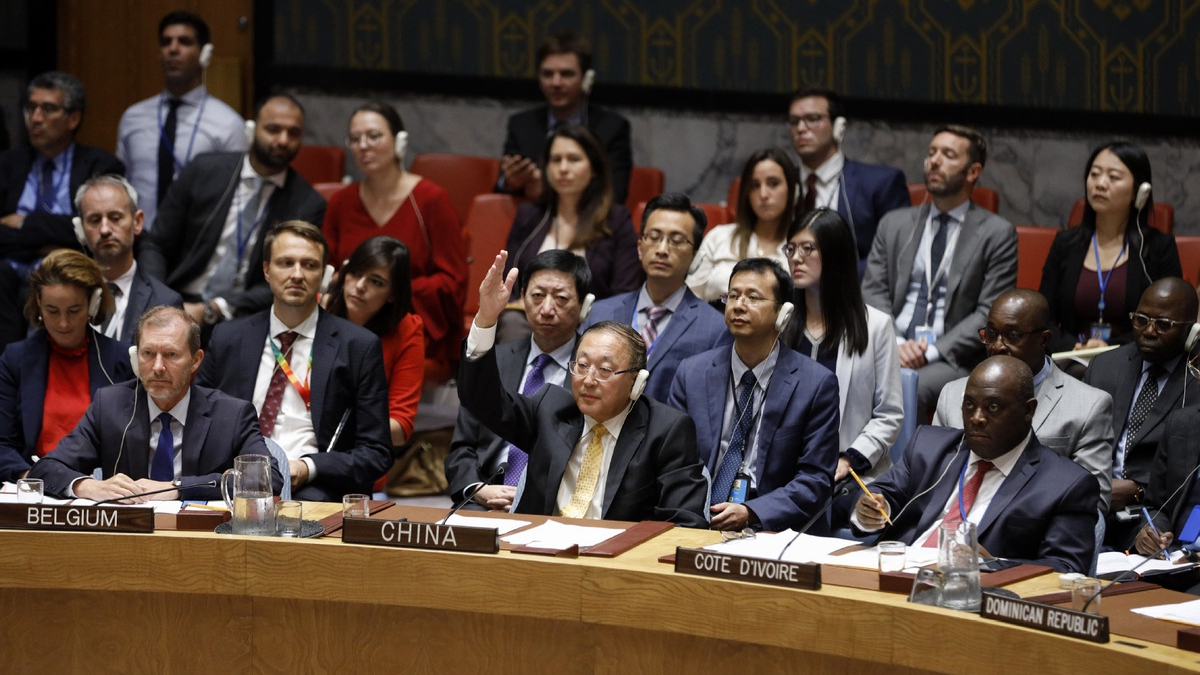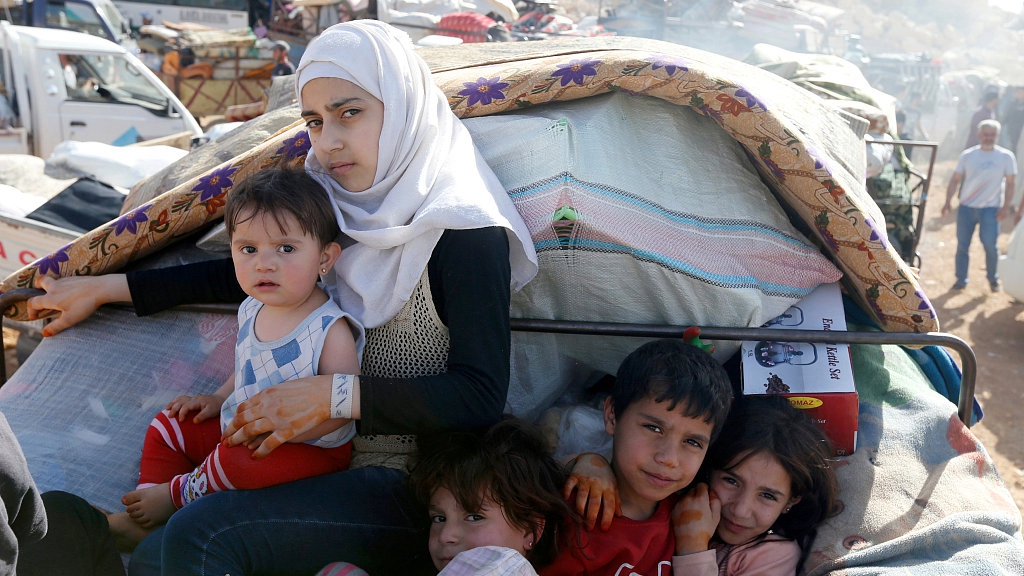
China's Permanent Representative to the UN Zhang Jun (C, front) vetoes a UN Security Council draft resolution on Syria at the UN headquarters in New York, September 19, 2019. /Xinhua Photo
China's Permanent Representative to the UN Zhang Jun (C, front) vetoes a UN Security Council draft resolution on Syria at the UN headquarters in New York, September 19, 2019. /Xinhua Photo
Editor's Note: Dr. Wang Jin is a research fellow of Charhar Institute in China and an associate Professor from Northwest University in China. The article reflects the author's opinion, and not necessarily the views of CGTN.
China cast its veto with Russia in the UN Security Council (UNSC) to block cross-border aid deliveries from Turkey and Iraq to Syrian civilians. The resolution drafted by Belgium, Kuwait and Germany would have allowed cross-border humanitarian deliveries for a further 12 months.
Since 2014, some NGOs have operated in Syria from four posts monitored by the UN in Turkey, Iraq and Jordan. The current authorization for the four border crossings in Turkey, Iraq and Jordan would end in January 10, 2020 and some of the UNSC wanted to extend these deliveries for another year.
The cross-border aid deliveries are very sensitive topics in the Syria issue. After the UN adopted Resolution 2165 in 2014, UN agencies and some NGOs started to truck assistance from Iraq, Turkey and Jordan into parts of Syria to help Syrian refugees. The aid largely played an important role to the Syria relief operation and many refugees benefited from the resolution.
However, the cross-border aid has also lead to problems. On the one hand, the UN agencies are not able to cover all the necessities and demands of the refugees inside Syria, while some NGOs play a much larger role.
Although these NGOs operated under the supervision of UN, in reality it is very difficult or even impossible for UN officials to monitor every truck or every item. Some NGOs have close ties with states hostile to the Syrian government, such as Turkey and European states, and some weapons were transferred into the hands of Syrian rebel groups and even terrorists inside Syria.
On the other hand, the assistance operated by some NGOs only targeted the Syrian dissidents or Syrian refugee camps controlled by Syrian rebel groups, rather than all those displaced.

Syrian refugees prepare to return to Syria from the Lebanese border town of Arsal, Lebanon, June 28, 2018. /VCG Photo
Syrian refugees prepare to return to Syria from the Lebanese border town of Arsal, Lebanon, June 28, 2018. /VCG Photo
Warfare has lead to a mass exodus of Syrian refugees especially to neighboring states, totaling nearly six million. This does not count the number of people displaced within Syria. Therefore, it is highly necessary for the international community to rescue and help all the Syrian people, just as the Joint Statement by Iran, Russia and Turkey on December 11 which called for "humanitarian assistance to all Syrians throughout the country without discrimination, politicization and preconditions."
It is not the first time that China and Russia veto the proposed resolution in the UN Security Council. China believes that it is highly necessary and important to settle the international crisis, including the Syria issue, through political manner, such as dialogue and negotiation based on the principle of respect and maintenance of Syrian territorial integrity and sovereignty.
Although U.S. and some European states have labeled the Syrian government as "illegal" and treat some Syrian opposition groups as the representative of "all Syrian people," the Syrian government led by Bashar al-Assad still holds the post in UN, and therefore it is necessary to respect the willingness and attitude of Syrian government.
After years of operation, Resolution 2165 has become a way to get around the Syrian government's restriction over aids to Syrian rebel groups controlled area. The political attitudes become the only standard of distributing the relief goods and further widen the division between Syria government and Syrian opposition groups. It is against this backdrop that China vetoed the extension of the cross-border aid resolution.